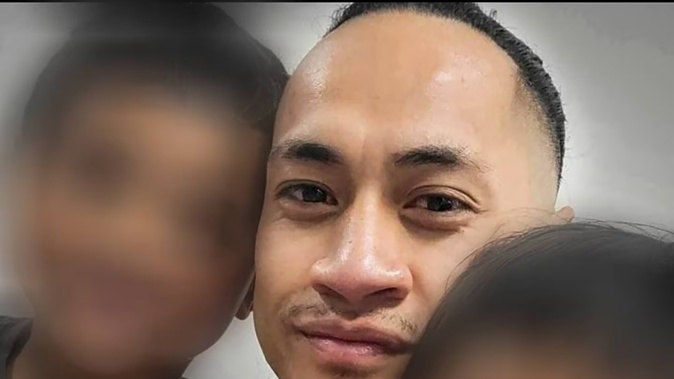

A young man who held up several Melbourne milk bars with a hatchet and was labelled a ‘milk bar bandit’ by Australian media has been banished to New Zealand.
Kiwi-born Matthew Euese, now 27, has been forced to leave behind his young children after the controversial section 501 of Australia’s Migration Act was triggered following his spate of criminal offending.
He had been living in Australia for 15 years when he was jailed in June 2021 for four years and two months on a count of intentionally causing injury.
The random victim suffered severe injuries, including a brain bleed, in a sudden attack at the hands of Euese who punched the man twice and then “threw” him in the gutter where he was left unconscious.
While it was the serious violence and lengthy prison sentence that led to the cancellation of Euese’s Special Category (Temporary) visa, which allowed him to remain in Australia, he has an extensive history of offending including four armed robberies, and one attempted armed robbery.
Details of his robbery spree around Melbourne were included in a decision released late last year by the Administrative Appeals Tribunal of Australia, after Euese made a plea to the authority to remain in the country.
It stated that in late 2017, he and his partner at the time held up five milk bars in four days, making off with thousands in cash and cigarettes.
Euese, then 20, stood over the shop attendants with a hatchet and made his demands.
Australian media reported the woman joined in the last robbery with a knife and a baseball bat, dubbing them the “milk bar bandits”.
The tribunal’s decision stated that following the robberies, the pair went to a bar where they were involved in an altercation that led to Euese assaulting a bartender and a patron.
They were arrested and Euese assaulted a police officer.
He was sent to jail for nine months for the robberies, the bar assault, the assault on the officer, and other charges.
The street attack on the stranger for which Euese was sentenced in June 2021 occurred within three or four months of his release from prison, and whilst he was on parole and subject to the terms of a Community Correction Order.
He has been in custody and immigration detention since his arrest for the street attack.
In his appeal against the decision to cancel his visa, the tribunal heard Euese has significant immediate and extended family ties to Australia.
He arrived in Australia in January 2006 with his parents and siblings when he was 9 years old and has lived there ever since.
His parents and siblings remain across the ditch and he also has two young Australian-born sons who reside there.
Euese has maintained contact with his children throughout his incarceration and told the tribunal of his desire to build a conventional father-son relationship with them.
He argued that for various reasons it would be difficult to re-establish himself if he was returned to New Zealand, including that he would find himself isolated.
/cloudfront-ap-southeast-2.images.arcpublishing.com/nzme/TD42OJ5OBZD5TFWPB373MGVG4I.jpg)
Matthew Euese's appeal was heard by the Administrative Appeals Tribunal of Australia.
Euese said he was remorseful for his offending and was making positive steps to rehabilitate.
The decision stated his criminal history in Australia dates back to 2015 and referred to several factors from his background believed to have contributed to his offending, including homelessness, family violence, alcohol and drug abuse.
A counsellor told the tribunal that she had been meeting with Euese weekly since he was placed in immigration detention and that he had grown and learned a great deal during that time.
She said he had completed several courses including a diploma in mindfulness, become more aware of his triggers to poor behaviour or criminality, and identified the “appropriate” kind of person he wanted to be.
His sons were a “powerful motivating factor” and he has a strong desire to be a good father and a decent role model, she told the tribunal.
“He wishes to be the kind of parent that he did not have when growing up. [She] believes that the applicant is now equipped to achieve that objective.”
When determining his appeal, the tribunal accepted Euese has significant ties to Australia and that it was in the best interests of his children for him to remain there.
But it also highlighted the frequency of his repeat violent offending and found the gravity of his crimes to be extremely serious.
In affirming the decision to revoke Euese’s visa, the tribunal stated his risk of reoffending was “simply unacceptable”.
“The harm that would be caused if the offending were to be repeated, may be so serious that even the relatively strong countervailing considerations raised by the applicant are insufficient to justify revoking the mandatory cancellation of his visa.”
An online petition was launched in September last year, before the tribunal heard the appeal, calling for Clare O’Neil, Minister for Home Affairs of Australia, to allow Euese to remain in Australia. It gathered almost 700 signatures.
Tara Shaskey joined NZME in 2022 as a news director and Open Justice reporter. She has been a reporter since 2014 and previously worked at Stuff where she covered crime and justice, arts and entertainment, and Māori issues.

Take your Radio, Podcasts and Music with you









